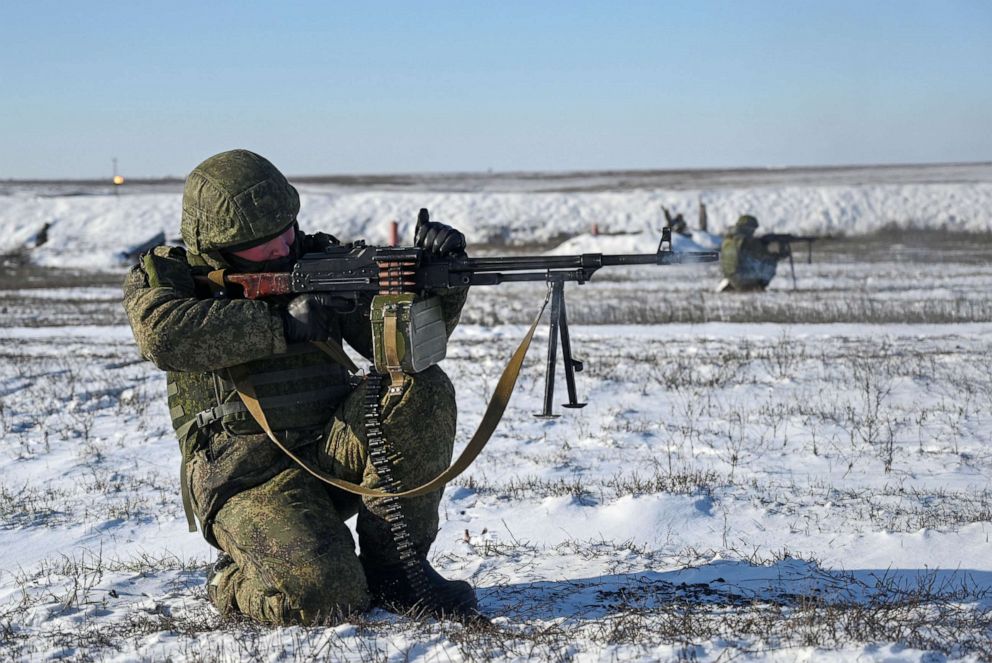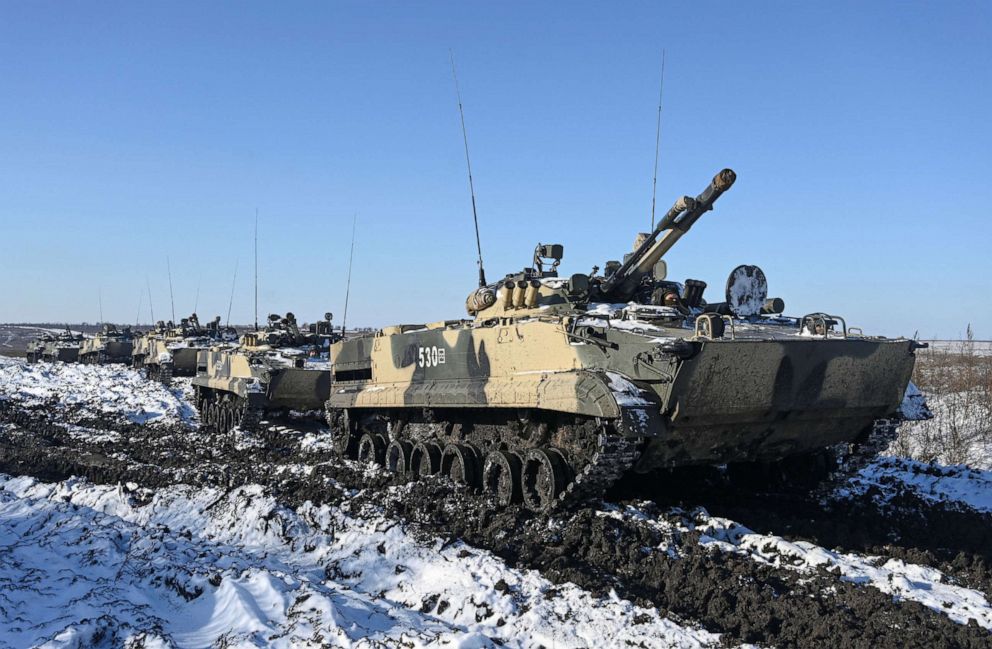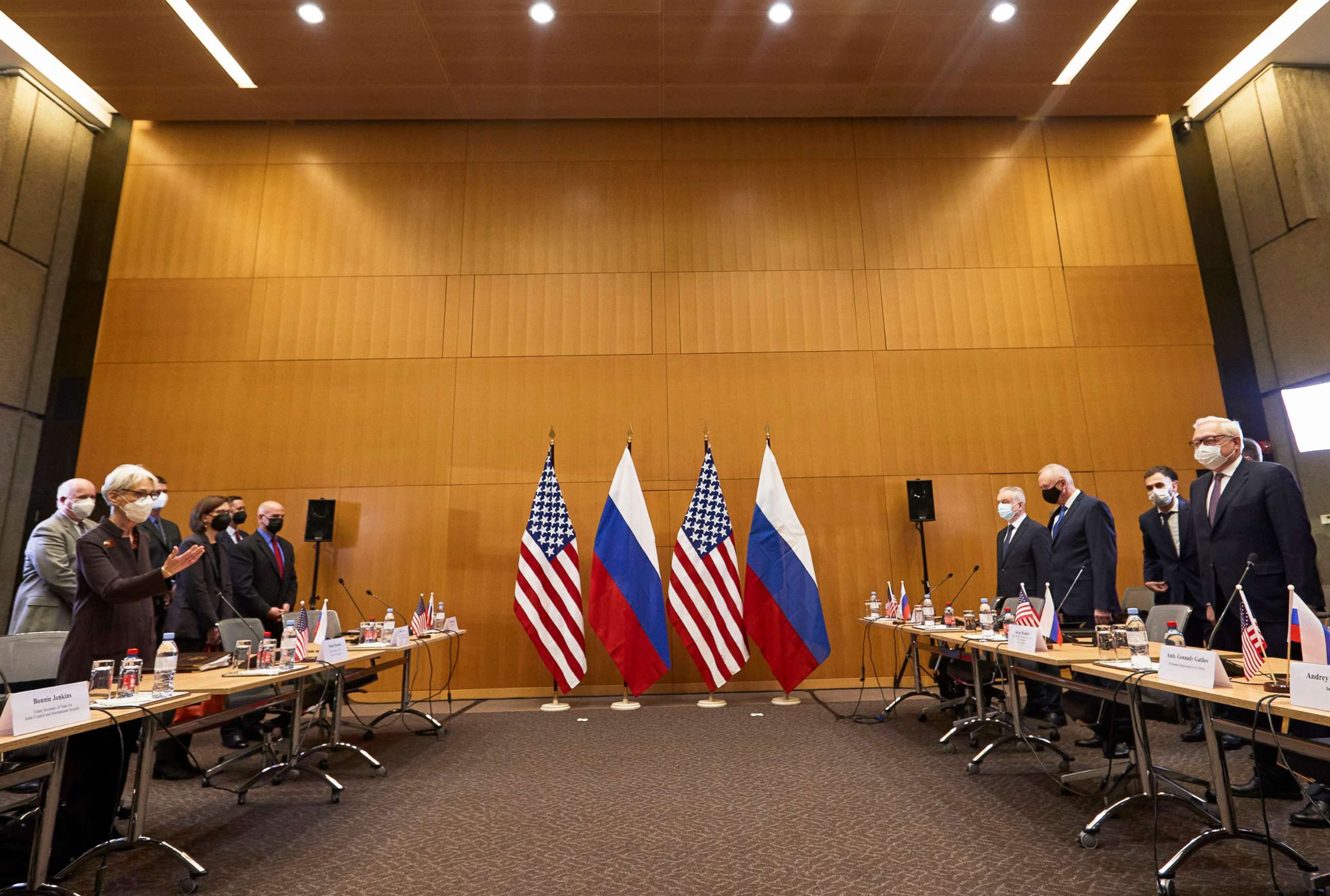US, Russia talks end with 'no progress': Here's what you need to know
Officials held over seven hours of talks Monday amid tensions over Ukraine.
U.S. and Russian officials held over seven hours of talks Monday, but the two sides did not negotiate or appear any closer to a resolution over heightened fears that Russia will attack its neighbor Ukraine.
In dueling press conferences after the talks, the top U.S. and Russian diplomats said their meetings were constructive, as they now move on to a second round at NATO's headquarters on Wednesday.
But while U.S. Deputy Secretary of State Wendy Sherman urged caution and praised the "frank and forthright" tone, her counterpart, Russian Deputy Foreign Minister Sergei Ryabkov, warned the U.S. is moving too slowly and not taking seriously Moscow's key demands.
Whether that sets the stage for genuine negotiations, or whether Russian leader Vladimir Putin is seeking a pretext for war, remains unclear, as Russia pushes to reclaim its Soviet sphere of influence and present its clearest, most fundamental challenge to European security in three decades.
Ryabkov said it is impossible for any progress to be made until the U.S. gives legal guarantees Ukraine and Georgia will never join NATO.
"We are fed up with loose talk, half promises. Ukraine and Georgia will never -- never ever -- become members of NATO," Ryabkov told reporters afterward, reiterating Russia's top demand, laid out last month in two draft treaties. "We do not trust the other side. We need ironclad, waterproof, bullet-proof, legally binding guarantees. Not safeguards -- guarantees."
He has said "no progress" was made on Russia's central demands and warned the U.S. is failing to understand the urgency of the situation.
Even as he denied the approximately 100,000 Russian troops on three sides of Ukraine's borders are preparations for an invasion, Ryabkov again warned Ukraine could spark conflict with a "provocation,"
"Enough is enough. The station now is so dangerous and so precarious that we cannot afford any further delays," he added.

But Sherman made clear that the U.S. will not bend on what it sees as a key principle -- that countries like Ukraine can make their own decisions about joining an alliance. Instead, she said the U.S. offered "preliminary ideas" on how to ease tensions and promote transparency between the world's two largest nuclear powers, including reducing missile deployments or military exercises.
"We certainly urged Russia to deescalate, to create an environment that is conducive to the diplomatic track, but we will see," she told reporters,
While the two sides gained "a better understanding of each other and each other's priorities and concerns," she said, they weren't engaged in negotiations just yet: "We're not at a point where we're ready to set down texts and begin to go back and forth."
"We must give diplomacy and dialogue the time and space required to make progress on such complex issues," she added, saying the U.S. would "move as expeditiously as we possibly can," but that, "Negotiations on complex topics like arms control cannot be completed in a matter of days or even weeks."

In contrast, Ryabkov struck a tone of urgency, adding, "In the coming days there will be more full clarity whether another round will take place, if yes, in what format."
After the NATO-Russia meeting Wednesday, there will be a third round of talks Thursday at the Organization for Security and Cooperation in Europe, a Cold War-era forum that has deployed a war monitor in eastern Ukraine as Russian-led forces battle the Ukrainian government.
That war, which has killed approximately 14,000 people and counting, is one way Moscow continues to destabilize its neighbor Ukraine, a former Soviet state that has sought closer ties to the West since protests toppled a pro-Russian oligarch president in 2013. After that revolution, Russia seized Ukraine's Crimean Peninsula and launched the war in the eastern provinces known as Donbas.
But the movement of approximately 100,000 Russian troops, along with heavy equipment, has sparked deep concerns about a possible full-scale invasion. Sherman said Monday it was still unclear what Putin had decided but called on Russia to return those forces to their barracks away from Ukraine's borders.

Russia has complained for decades about NATO’s expansion to include countries that Moscow dominated as the Soviet Union. Now it has argued that Ukraine has moved too close to the alliance, arguing that NATO military advisors and equipment provided to help Ukraine defend itself in its war with Russia mean it is becoming a de-facto part of it. In 2008, NATO adopted a resolution that stated Ukraine and Georgia would one day become part of the alliance, but there is little support among Western countries for that to happen quickly.
Russia views having forced the U.S. to talk about its concerns around Ukraine is an important victory in itself. Ryabkov at the talks suggested that had given grounds for some optimism.
"I don’t consider the situation hopeless,” he continued. “I think the usefulness of the talks in Geneva is mainly that, for the first time, we were able to talk about issues that before existed, but as if behind the scenes.”
But he said Russia wants NATO to use its next summit in Madrid this year to renounce the 2008 resolution that opened a path for Ukraine and Georgia to join, a demand that has been seen as a non-starter by the U.S.
The U.S. has floated ideas to increase transparency and reduce suspicions between the two sides, including reductions on the deployment of nuclear missiles and other weapons -- although Sherman said the U.S. will not negotiate on the deployment of its forces in Europe, saying it's an issue for only the U.S. and its allies to discuss.
"We will go through all of the discussions this week. We will reflect on them all. I expect that incorporating those, talking with our partners and allies at NATO, at OSCE -- we will then have further conversations with the Russian government and decide on the best way forward," she said.
For Russia, however, that rejection of NATO membership for Ukraine and Georgia, another former Soviet state where Russian forces currently occupy parts of the country, does not bode well for a diplomatic solution. The question is: If the U.S. and NATO hold firm on that line, will Moscow accept anything else instead, or will its forces attack?
An agreement is still "possible," Ryabkov said, but ending NATO's expansion is "an absolute imperative."




